This story was first published in the Portland Press Herald on Jan. 9, 1998.
It’s a storm for the ages.
Freezing rain coated most of Maine in a sheet of ice Thursday, leaving thousands of people huddling in the cold and turning roads into treacherous obstacle courses littered with downed trees and live wires.
Gov. Angus King declared a state of emergency because of widespread power outages, weather forecasts warning that more freezing rain is on the way, and fears that the worst is yet to come.
“We have a very dangerous situation,” said Bill Libby, director of Maine’s Emergency Management Agency. “We have so many people without electricity or heat, and some people in outlying areas are isolated out there because of the ice. And it’s not close to being over.”
Late Thursday, more than 220,000 Central Maine Power customers in southern and central Maine were without power, or more than 40 percent of CMP customers. Officials said some of those who lost power won’t get it back for four or five days.
The hardest hit areas included Lewiston, Augusta and Bridgton, where more than 100,000 CMP customers lost power. Rockland also was hit hard.
In the Portland area, about 12,000 customers lost electricity, CMP said. Windham, Buxton, Cumberland, Gray, Falmouth and Gorham bore the brunt of the storm.
CMP officials said the storm was unusual for its scope: It walloped almost every part of the state.
“This is the largest outage we’ve ever had, and until the forces of nature clean the trees up the threat could remain for a week or more,” CMP spokesman Mark Ishkanian said Thursday evening. “This is a once-in-a-lifetime storm.”
CMP had 90 crews working throughout the day and into the night, as well as more than 25 crews from Rhode Island and Massachusetts pitching in to help. Still, the number of people without power grew as the day wore on.
In northern and eastern Maine, Bangor Hydro-Electric Co. reported tens of thousands of customers had no power Thursday night. Hardest hit areas were Bangor, Brewer and Hampden.
Bell Atlantic urged customers in Maine to avoid unnecessary calls because the ice storm forced the phone company to turn to backup power systems. Only about 1,400 customers lost their phone service.
By 8 p.m., nearly 40 shelters had opened statewide to provide refuge to people without power and heat. Libby said that, too, is unprecedented.
“I don’t recall ever having an ice storm like this in this state, and we’ve never opened (this many) shelters,” he said.
Local American Red Cross chapters, which operate the shelters, called in disaster specialists from other New England states to help coordinate the extensive relief effort.
King declared a state of emergency at noon Thursday, putting the National Guard on alert to aid with possible evacuations and other storm-related emergencies. He toured shelters and visited CMP repair crews Thursday night.
King said the resources of cities, towns and counties could soon be exhausted, and that state aid might be needed.
In places like Sabattus, so hard-hit that even road crews were cautioned to stay inside before dawn Thursday, people began seeking help – and shelter – soon after the power went out at 4:30 a.m.
The school, credit union, town office, and market, which advertises being open seven days a week, were all closed.
“This town is wiped out,” said Sabattus Fire Department Capt. Marcel DeForge, as he eyed the icy landscape.
Most state workers were told to stay home Thursday because of power outages in Augusta. Even at CMP’s headquarters in Augusta power went on the blink. Twice.
“We’re managing like everyone else,” said CMP spokeswoman Meredith Finn. “We understand how people (without power) feel because we’re in the same boat.”
No major accidents and few injuries were blamed on the storm. With many businesses, stores and schools closed, many people stayed home.
Outdoors, trees – some old and once majestic – were bent over with ice. The steady snapping of trunks and branches turned backyards and driveways – not to mention roads – into danger zones.
In West Falmouth, Mike Graffam and his brother, Jeff, drove nervously beneath the slumping trees on Blackstrap Road, fearful that a massive, ice-encumbered limb would crash down on their pickup.
“It’s wild out here,” said Jeff Graffam. They didn’t want to head out in this mess, he said. But since they didn’t have any power, they had to go out and fetch water for their 50 horses.
In the Sagadahoc County community of Bowdoin, a frozen limb snapped off a tree and broke a man’s leg as he was walking from his house to his car about 1 p.m.
James Harrington, 51, was taken to Mid Coast Hospital in Brunswick, where he underwent surgery.
The storm was especially hectic for hospitals.
St. Mary’s Regional Medical Center in Lewiston, Northern Cumberland Memorial Hospital in Bridgton, and Maine General Medical Center in Augusta contended with extra crowds amid power outages that forced them to use their back-up generators.
Dan Marois, a spokesman for St. Mary’s, said the hospital made arrangements for people with medical problems to stay in the hospital overnight, if necessary.
Maine General Medical Center also became an impromptu emergency shelter for the frail elderly and others with health problems and no heat at home.
“We really didn’t intend to do it, but we have a shelter for people who need assistance,” said hospital spokeswoman Mary Plumer.
With no shelter open in the Bridgton area, a local nursing home opened its doors – and its extra beds – for elderly people in need of a warm place to sleep, said Town Manager James McMahon.
As hundreds of Mainers began making their way to shelters, others braced for a few days in the dark, without heat and water.
“We’re used to it,” said Brenda Irish, as she sat in the darkened Little Falls Mini Mart in Gorham, eating lunch with her family.
Life at the end of Wilson Road often means waiting until almost everyone else has power before getting theirs back, she said.
The market was able to keep serving because the grill and deep fryer are run on gas, and counter clerk Melissa Joy had a solar calculator to figure the checks.
“We’re like the community shelter,” Joy said, gesturing at the 20 people talking in whispers over coffee and sandwiches.
Ed Cullen, the manager of an Augusta hardware store, also decided to keep his store open, even though it, like so much of Maine, was in the dark.
“We talked about closing for about five minutes, until the customers started pouring in,” he said. “I’m 64 years old and I have never seen anything quite like this before.”
In York County, 15,000 to 20,000 customers were without power Thursday. The communities of Acton, Buxton, Cornish, Newfield and Shapleigh were hit the hardest.
In Acton, where power flickered on and off all day, plans to open a Red Cross shelter at Acton Elementary School were canceled when power at the school went out.
Less than a block from the Acton Trading Post, icy wires dragged down a utility pole about 2 a.m. Thursday. In one cold thud, 2,000 people lost power and Route 109, a major artery through western York County, was cut off until early afternoon.
While most of Maine was weighted down with ice, Portland and other areas along the southern coast emerged largely unscathed.
Although there were tree limbs down and some power outages, most of the southern coastal areas saw more rain than ice.
Still, Portland public works crews remained on alert in case the mercury dipped below freezing. Sanding trucks patrolled the city around the clock.
“The temperatures are borderline,” said William J. Bray, the city’s acting director of public works. “So we have to be right on top of this all the time.”
The Portland International Jetport was not affected by the storm.
“Everybody’s flying,” said Airport Manager Jeffrey Schultes.
Power outages, not ice, caused the most problems on the Maine Turnpike, said Dan Paradee, spokesman for the Maine Turnpike Authority.
The lack of power meant travelers were unable to pump gas at the Turnpike Authority’s four service stations, Paradee said.
As for the roads: travel remained smooth, albeit slow, from Gardiner to Kittery. The speed limit north of New Gloucester was reduced to 45 mph. South of New Gloucester motorists were able to drive 65.
“Things have been running well all day,” Paradee said.
Nevertheless, he said, the Turnpike Authority planned to have “courtesy patrols” on the turnpike overnight to help motorists who break down or become stranded.
CMP officials can’t say when customers will have power restored, in part because workers on Thursday could not keep pace with the number of lines going down.
Extra line crews from Massachusetts and Rhode Island started arriving early in the day, but as the day dragged on, the outages spread.
“We’re not going to make a whole lot of progress tonight,” CMP’s Ishkanian said. “If anything, it will get worse. It’s going to take a number of days to repair the storm damage, so people (without power) need to make plans and they need to help each other out.”
Ishkanian said some customers may be without power for four or five days, maybe longer, depending on weather conditions.
At the offices of the National Weather Service in Gray, dubbed the “crystal palace” by one meteorologist because of the thick sheen of ice all around, forecasters warned not to look to Mother Nature for quick relief.
“Another fairly heavy batch of rain showers is heading our way,” Al Wheeler, the meteorologist in charge of the Gray office, said Thursday night. “The forecast for tonight and the first half of tomorrow is just not good at all.”
Wheeler, who doesn’t have power at his Cumberland home and is relying on a generator at his Gray office, may feel like many Mainers after a long, icy day.
“I’d rather have snow,” he said. “It’s much easier to deal with.”
Send questions/comments to the editors.

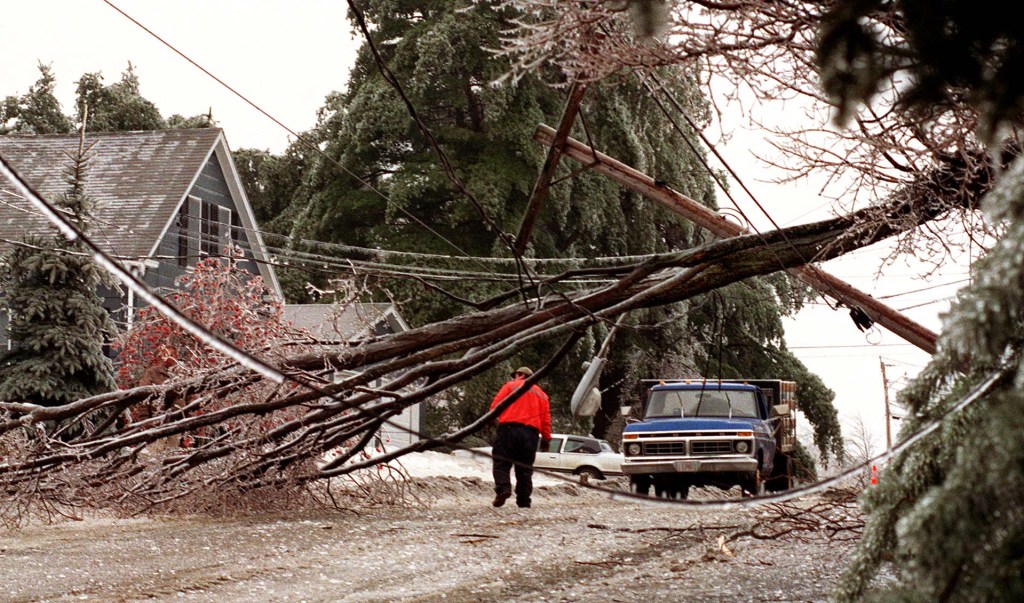
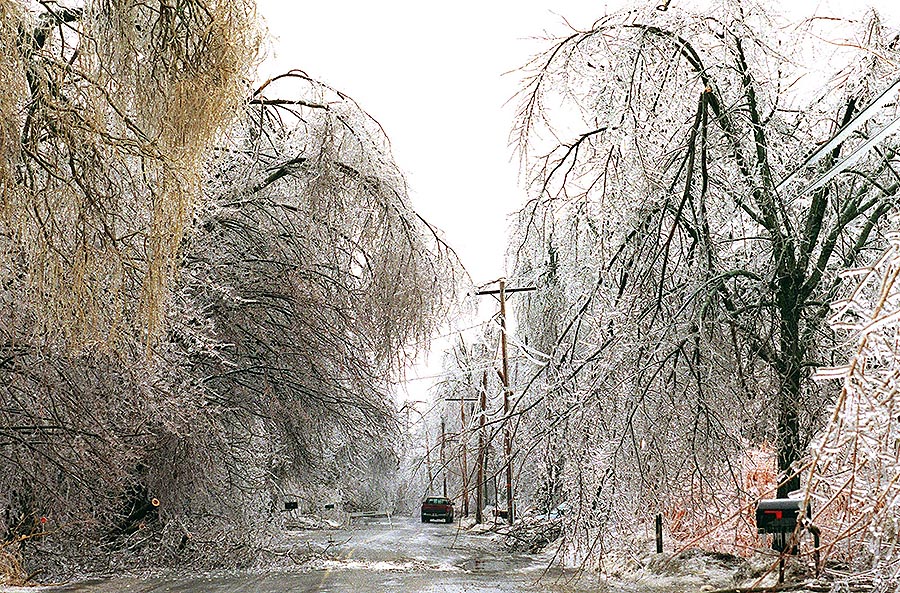
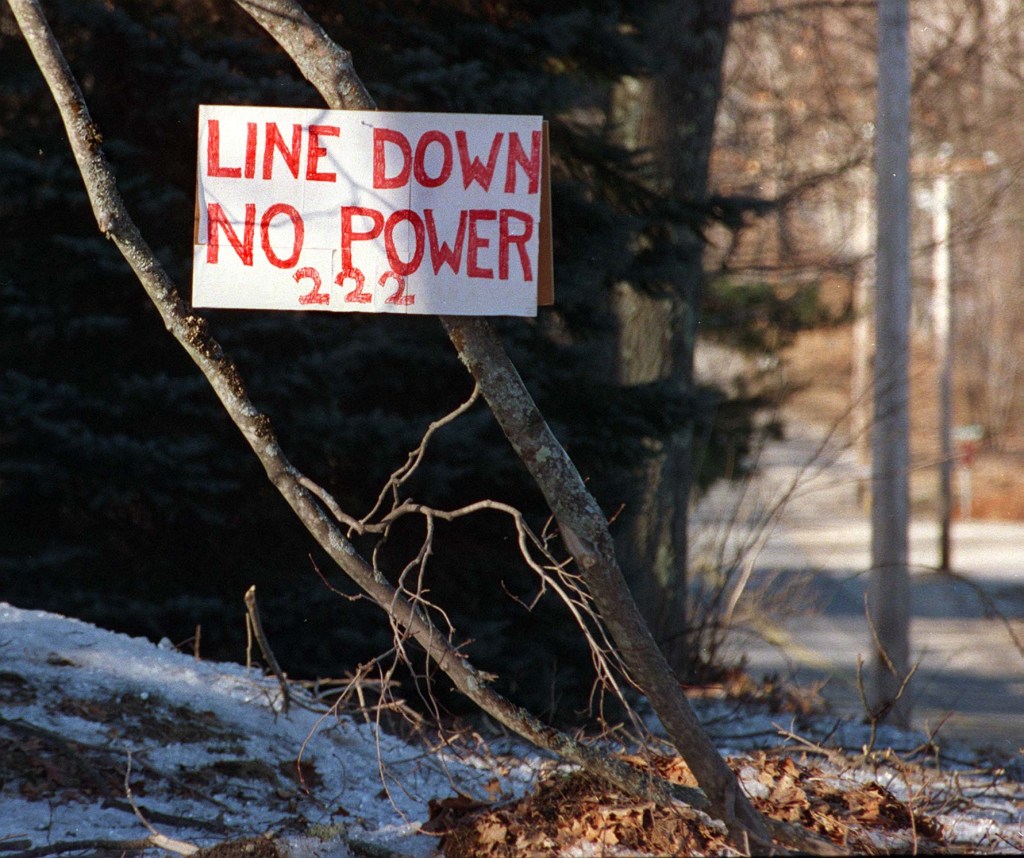
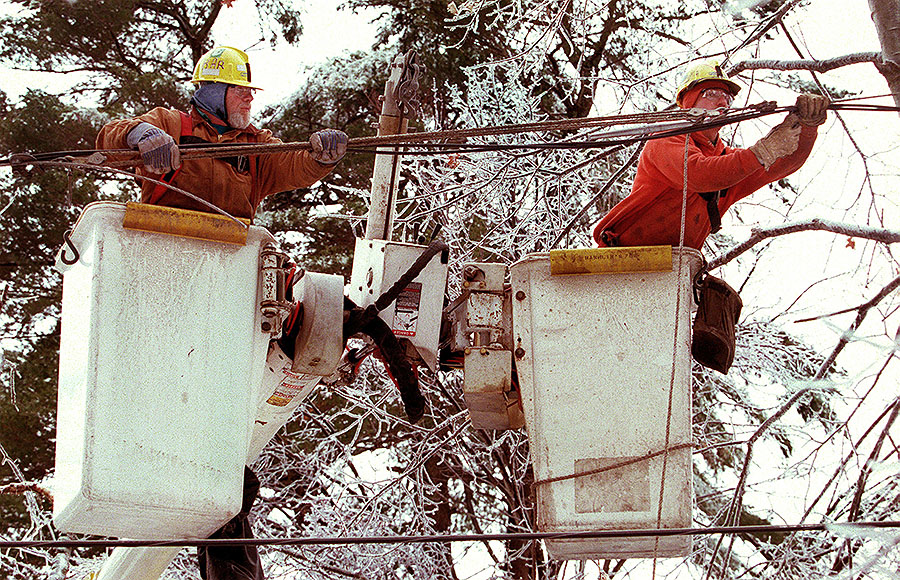

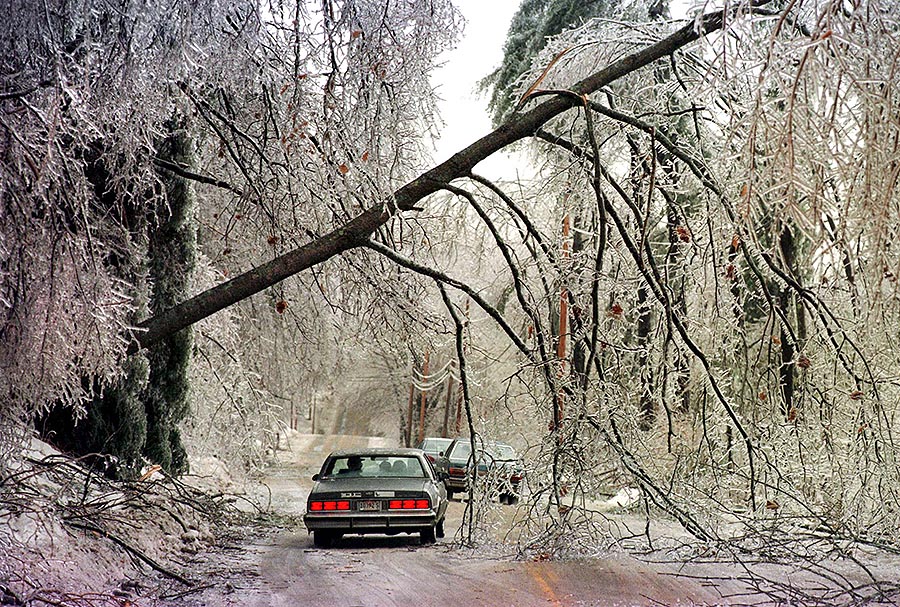
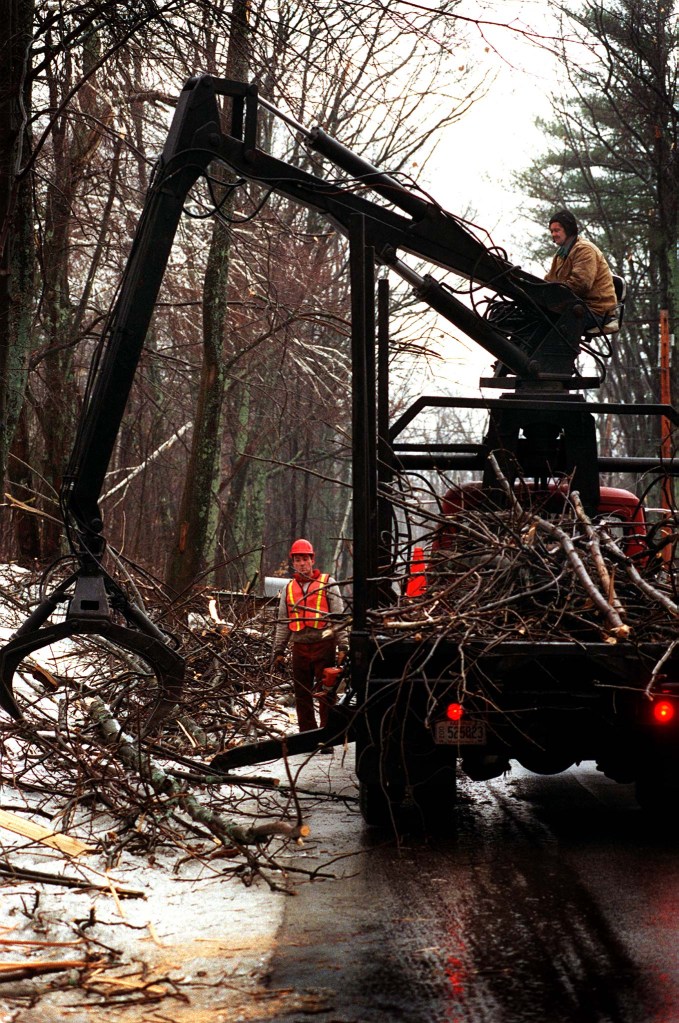
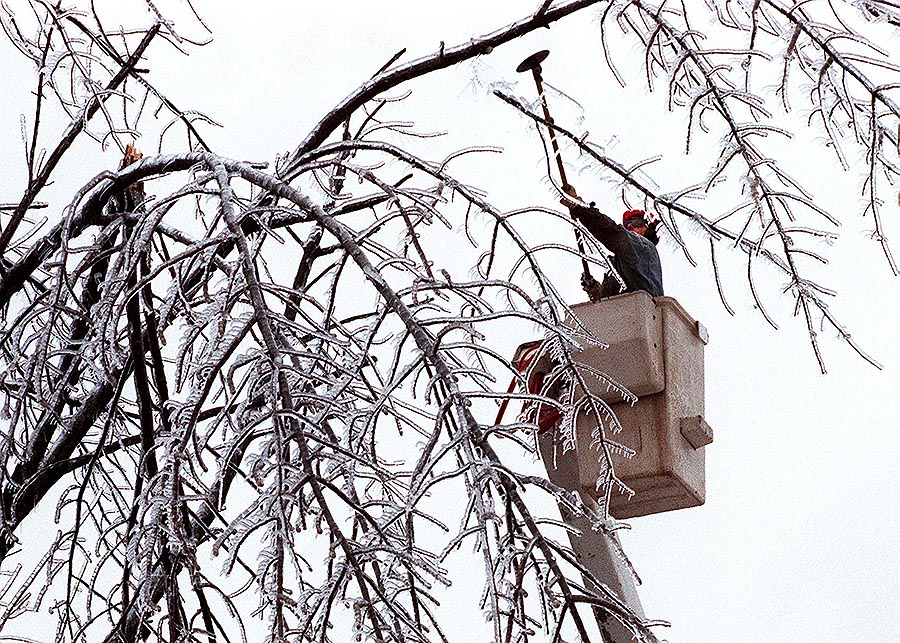
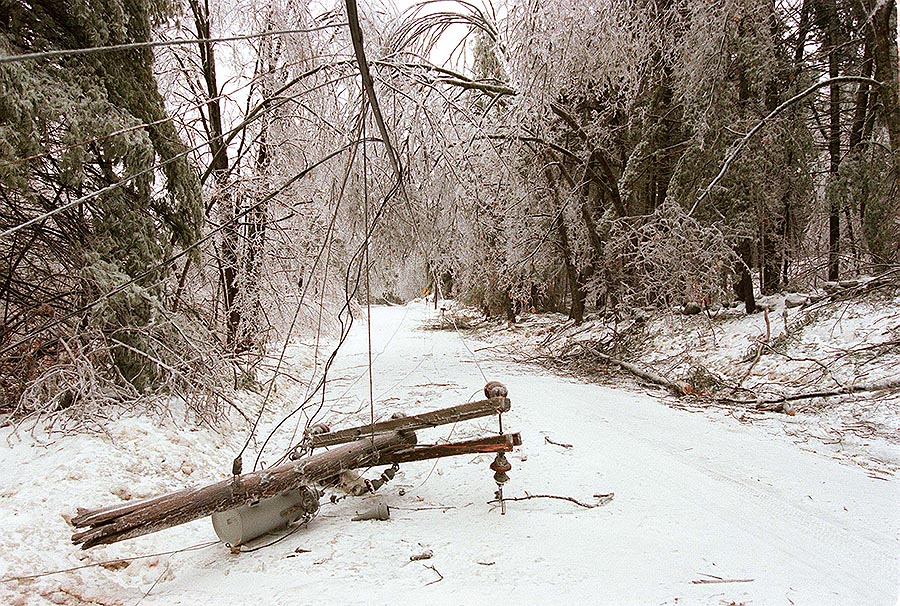

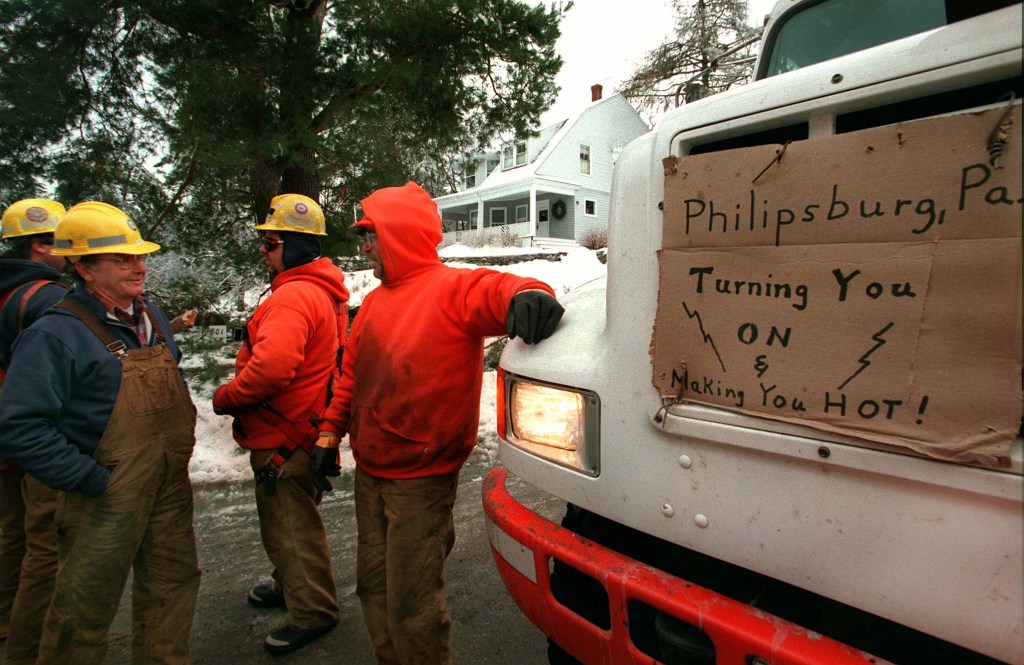
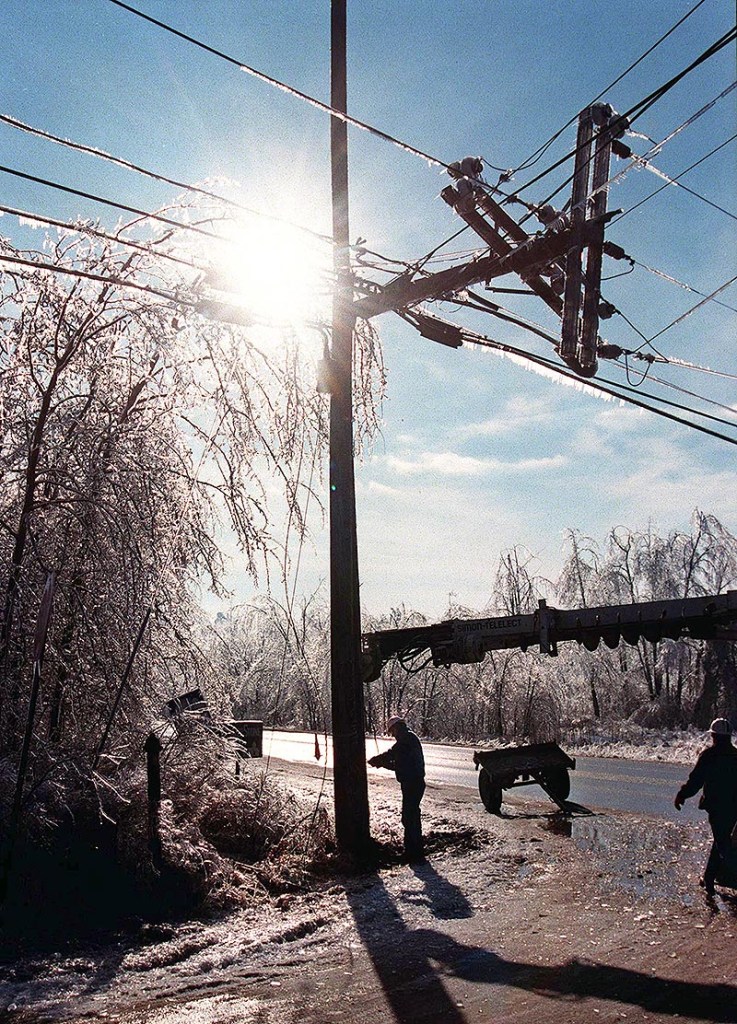

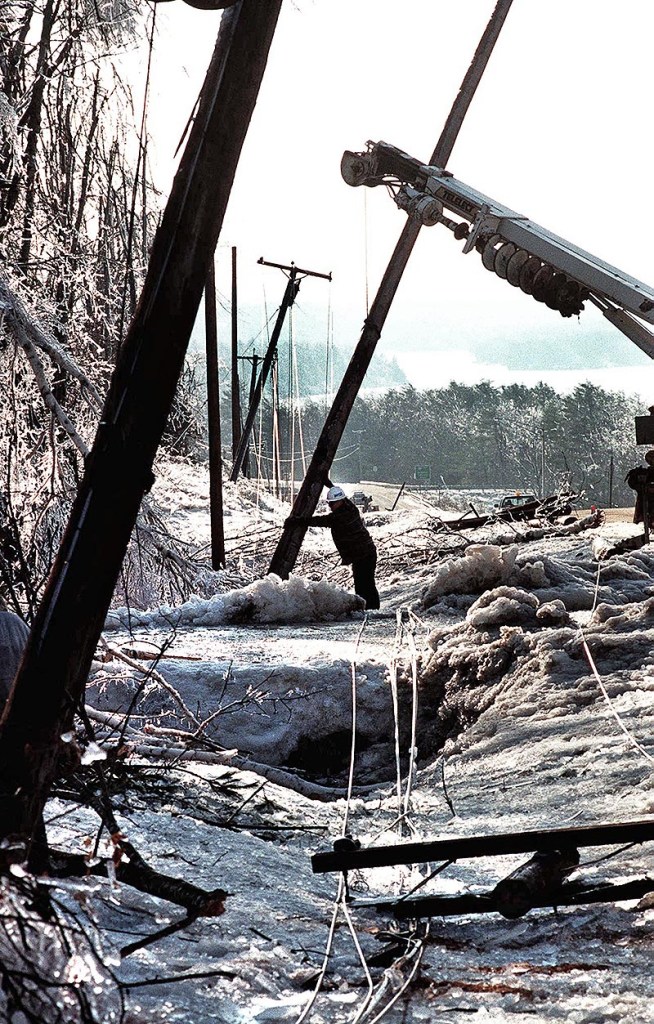
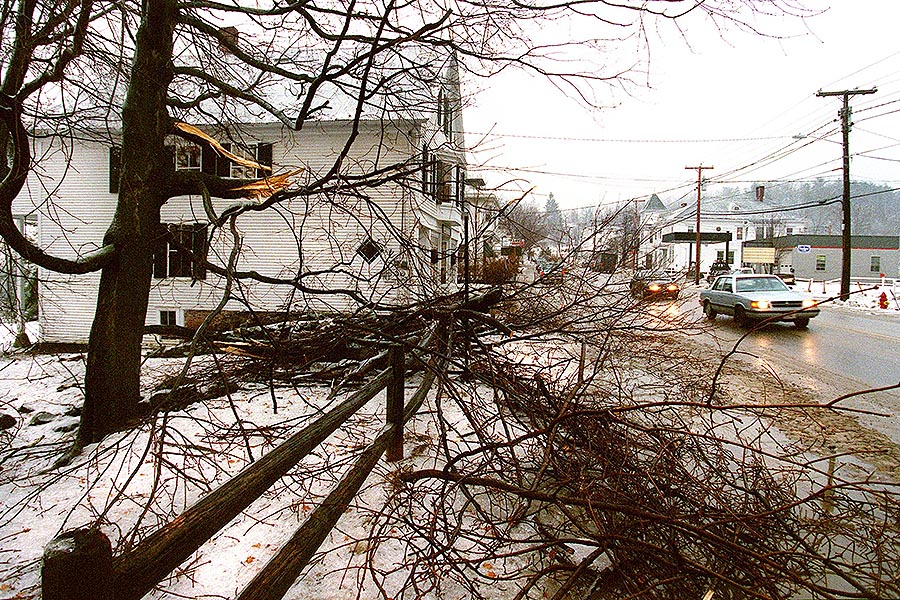
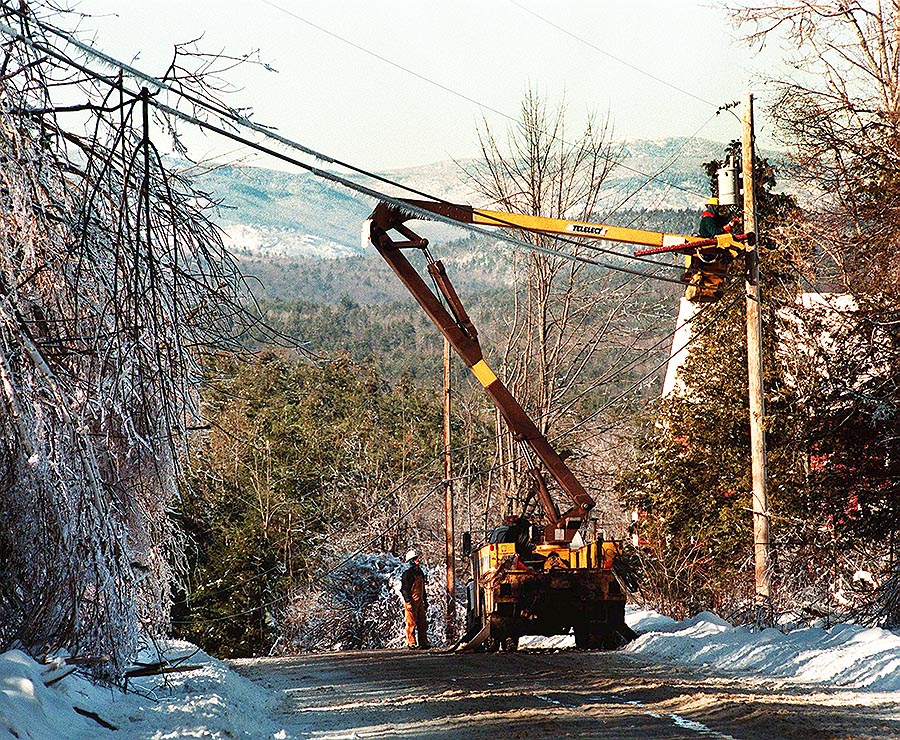
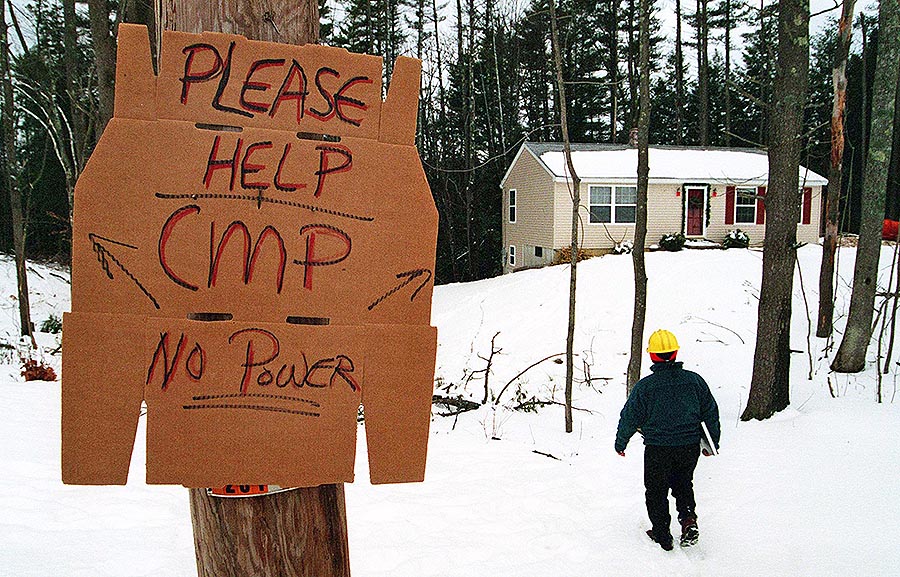
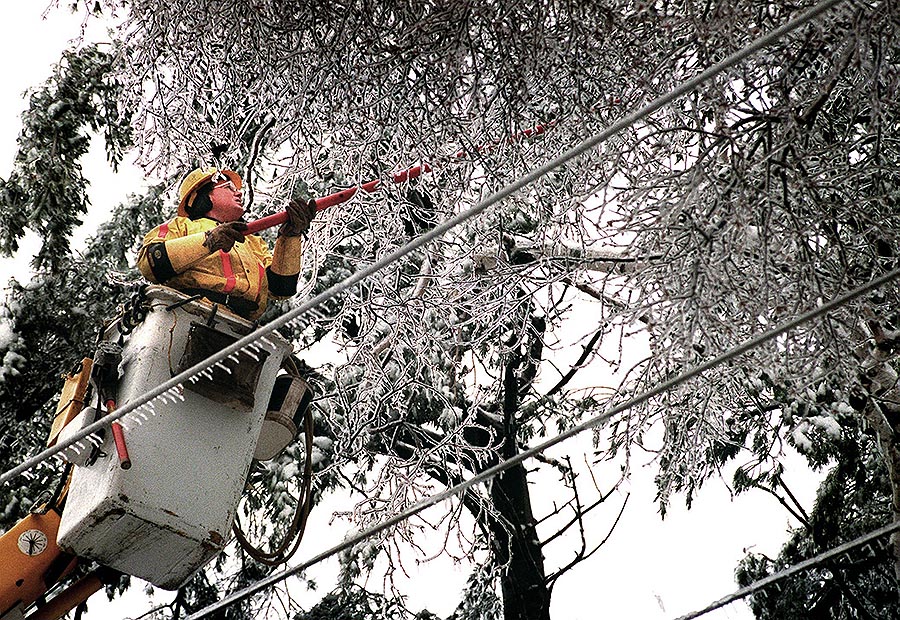

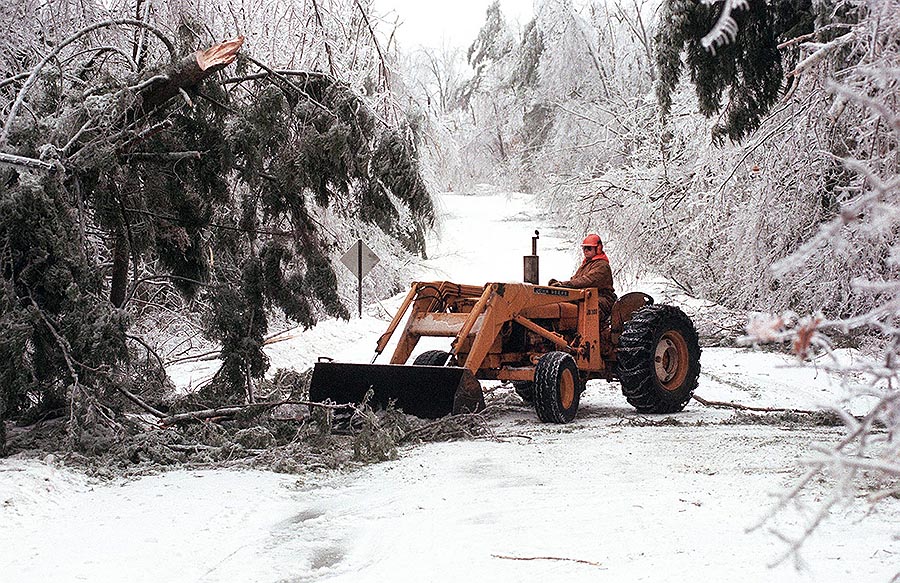
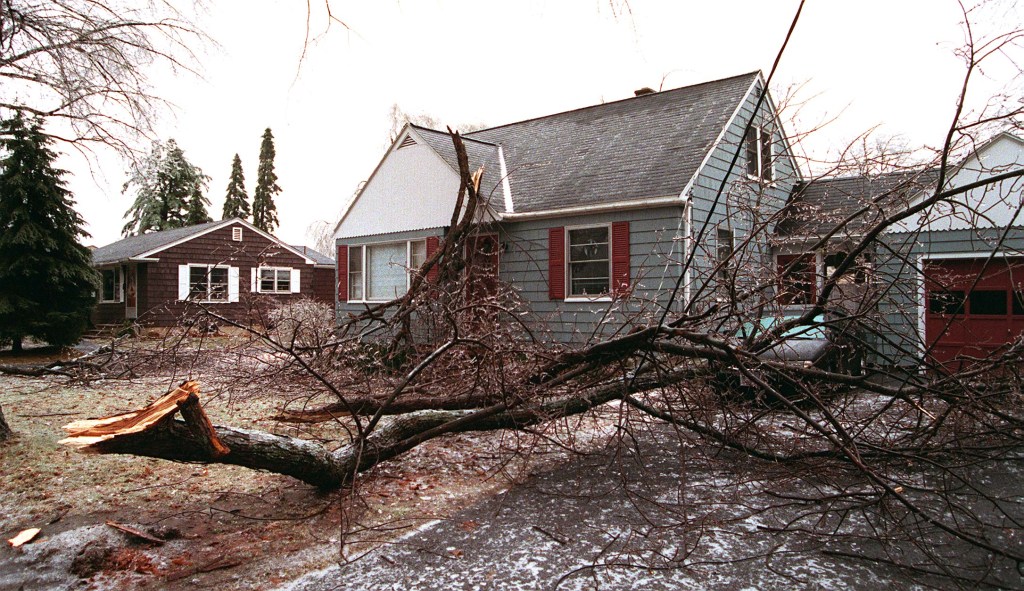
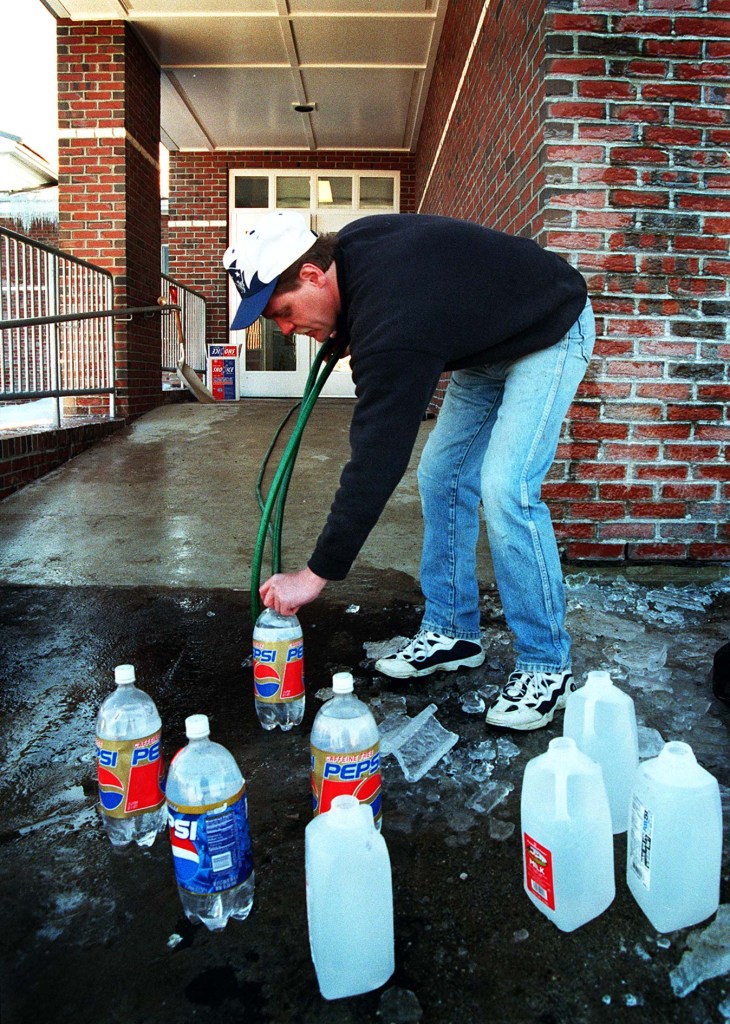
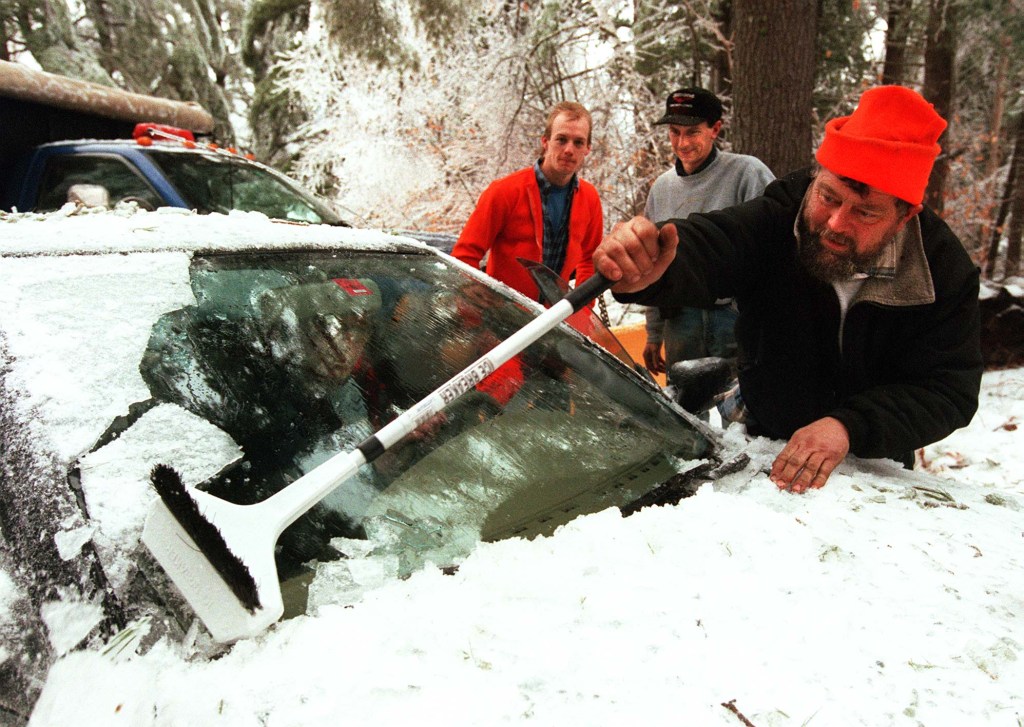

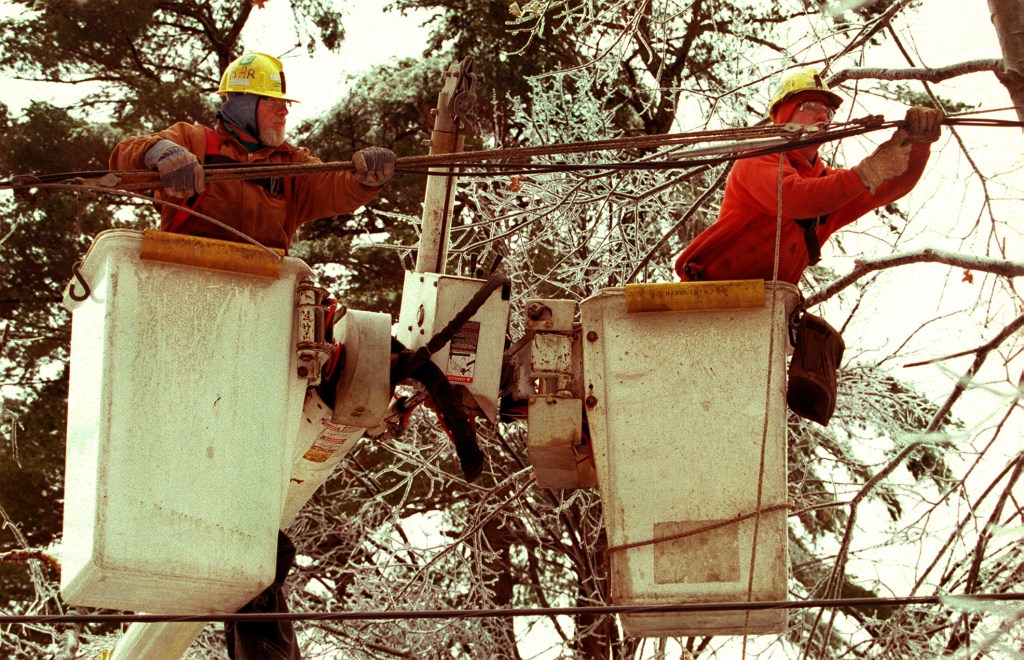
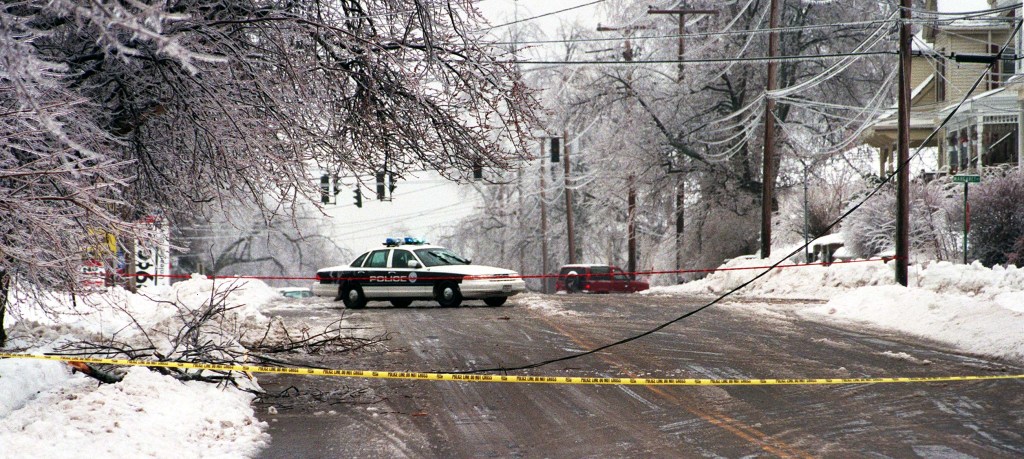
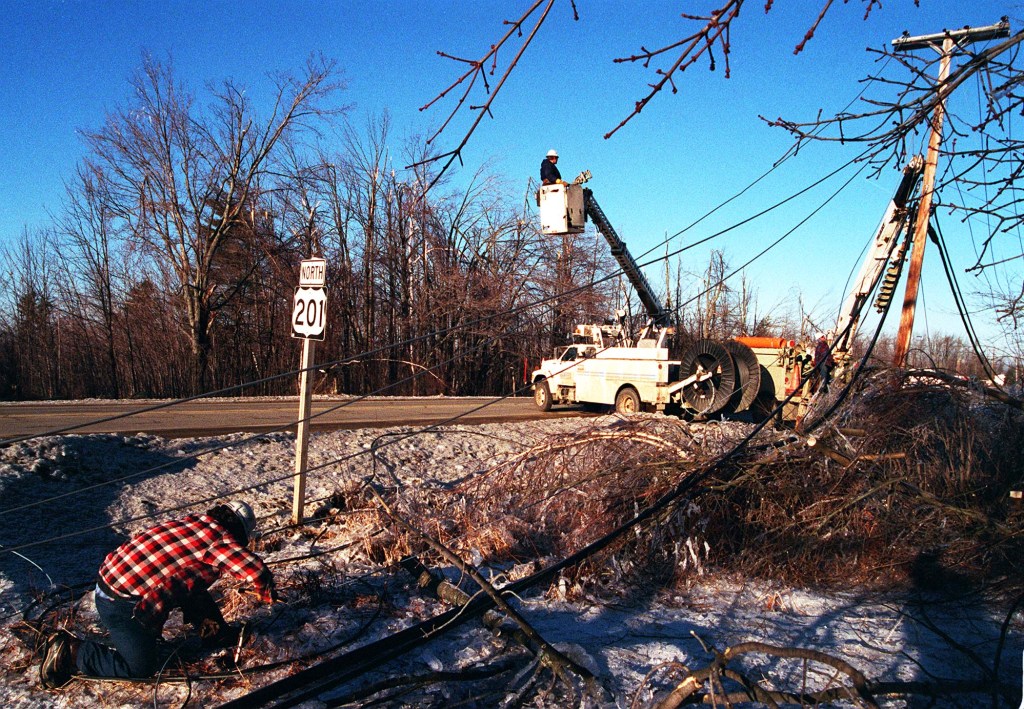
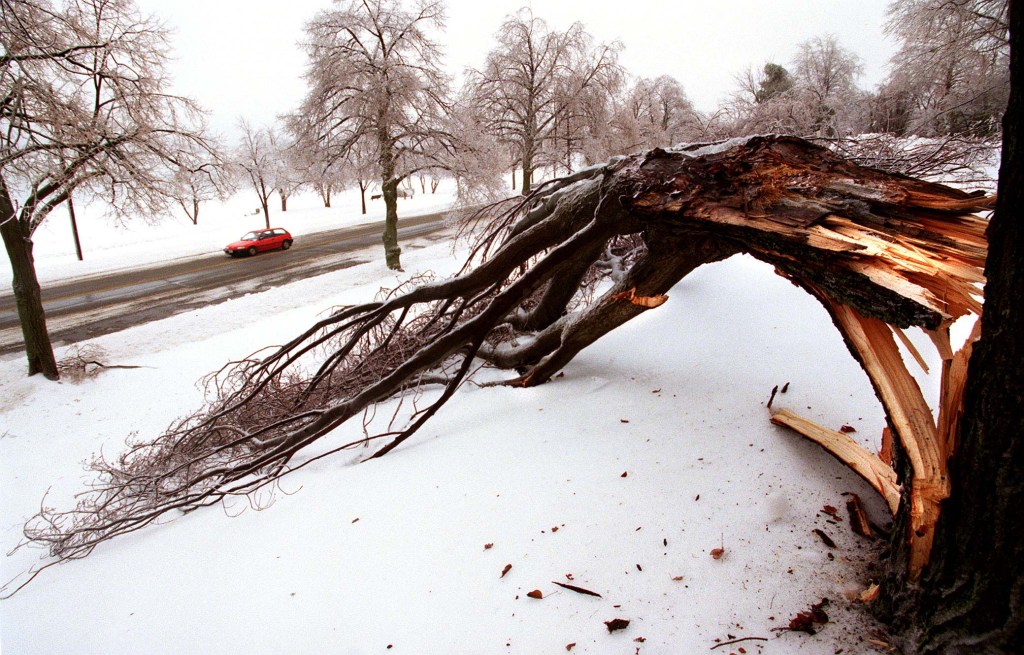
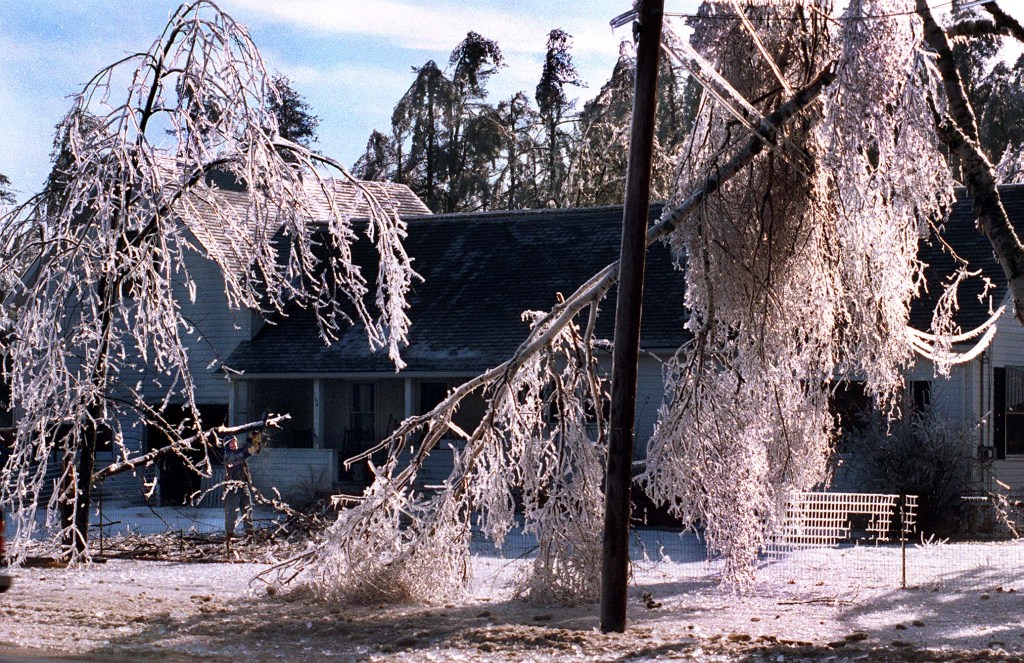


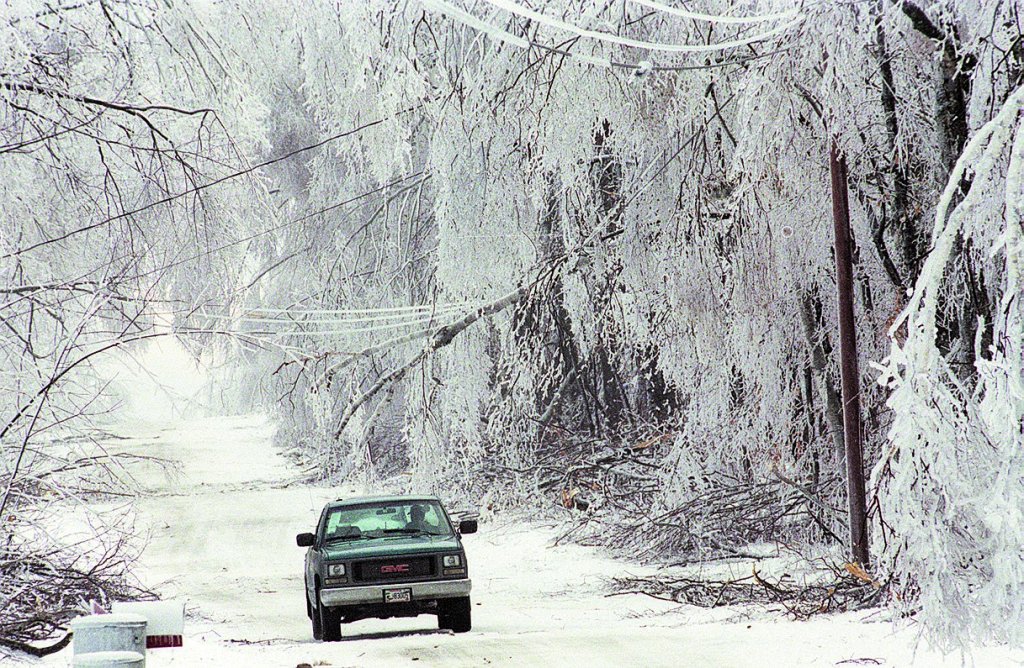

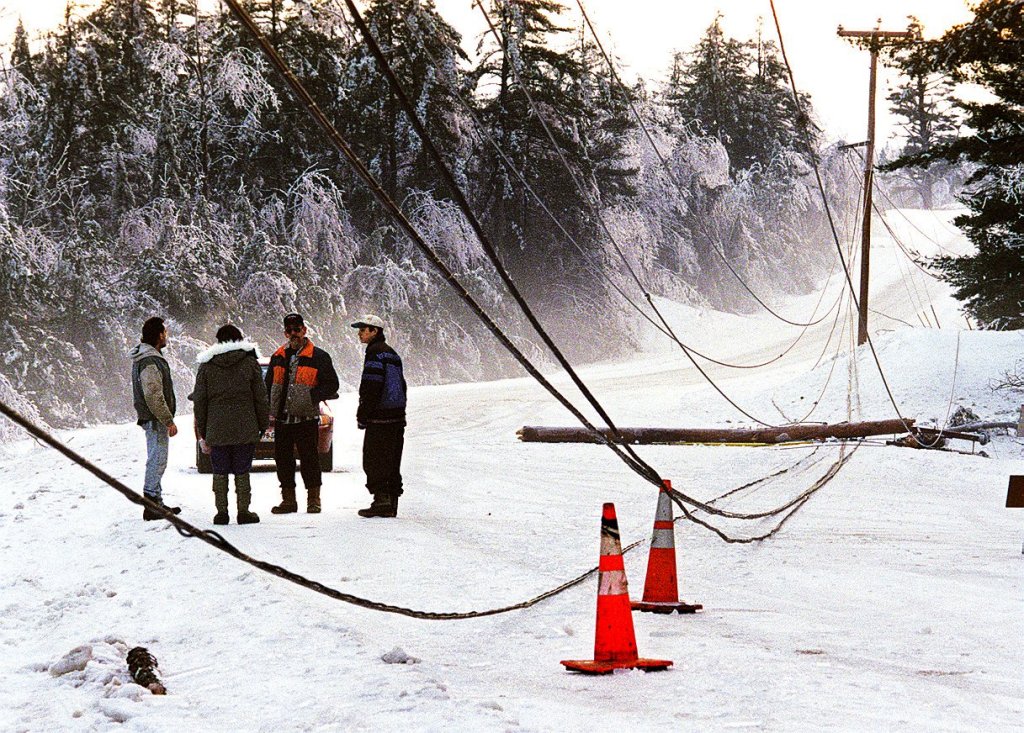
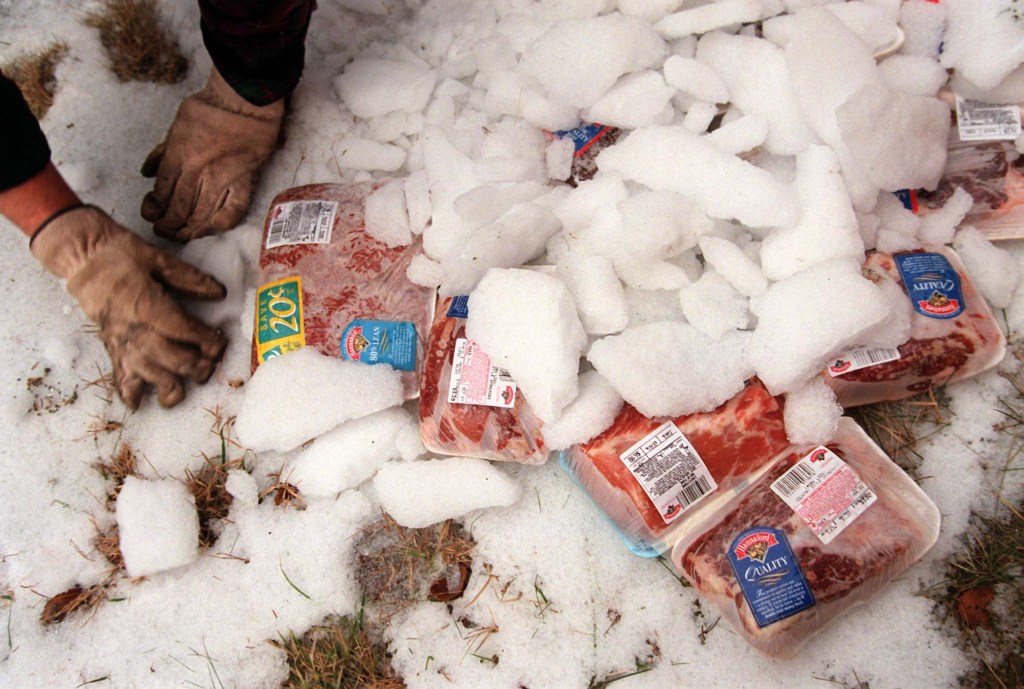
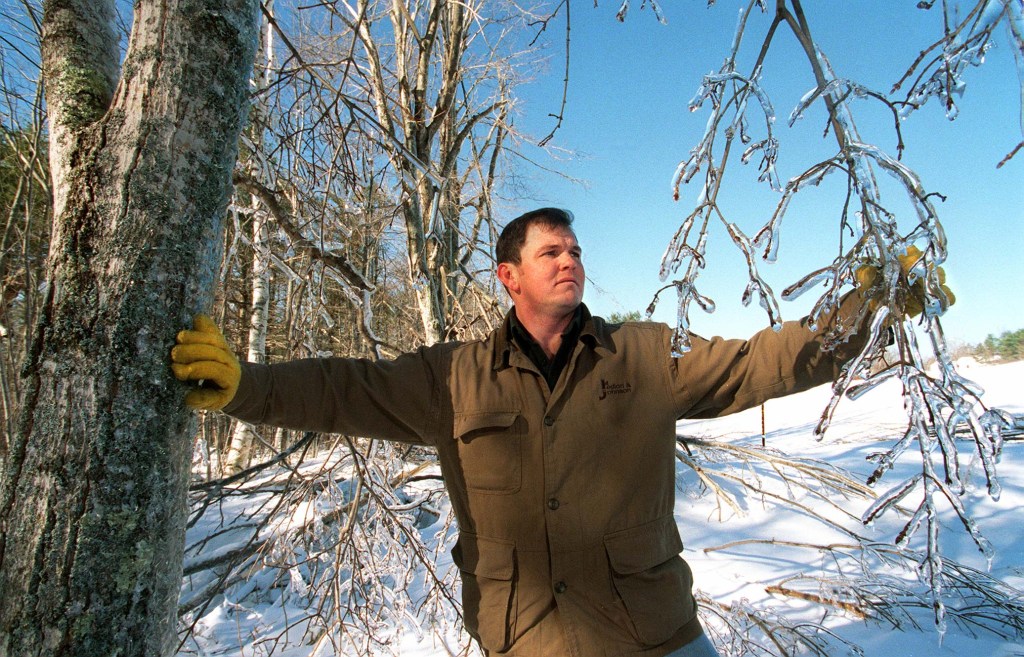
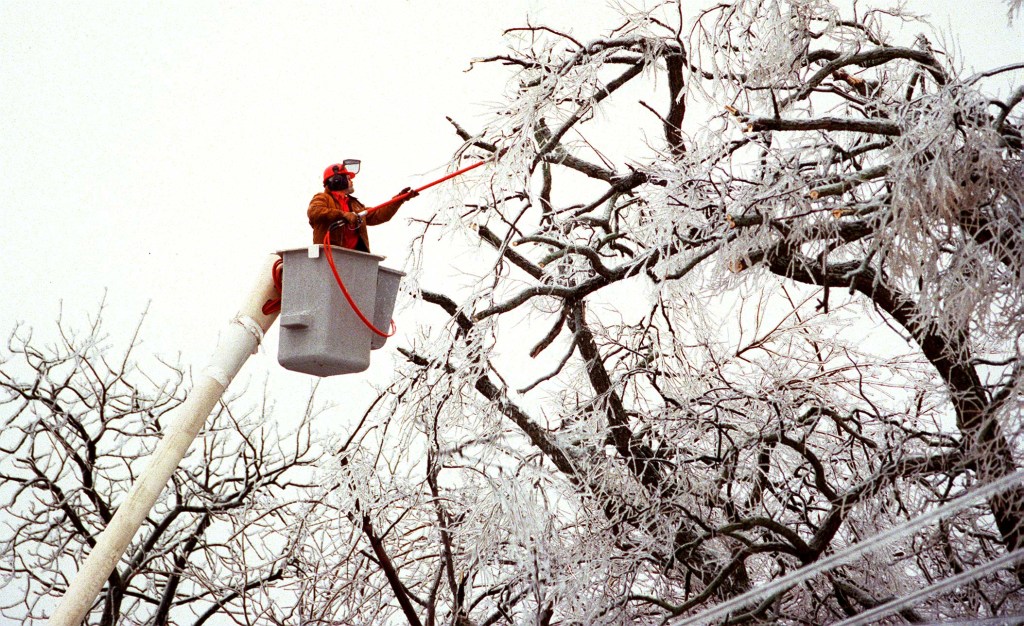
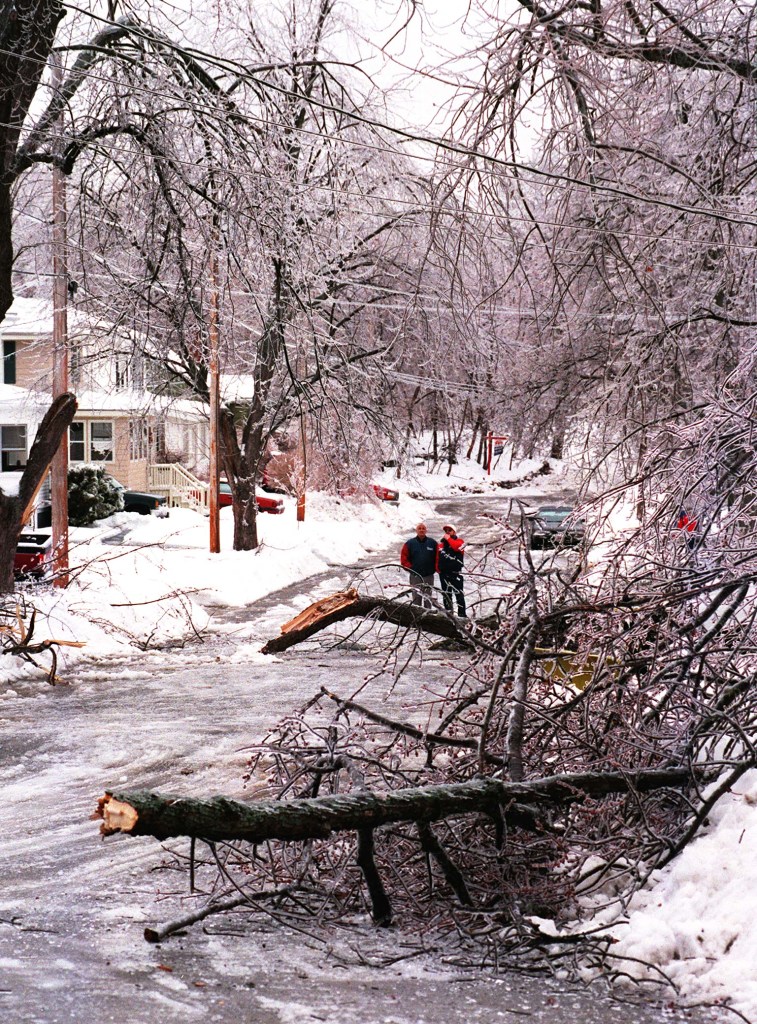

Comments are no longer available on this story